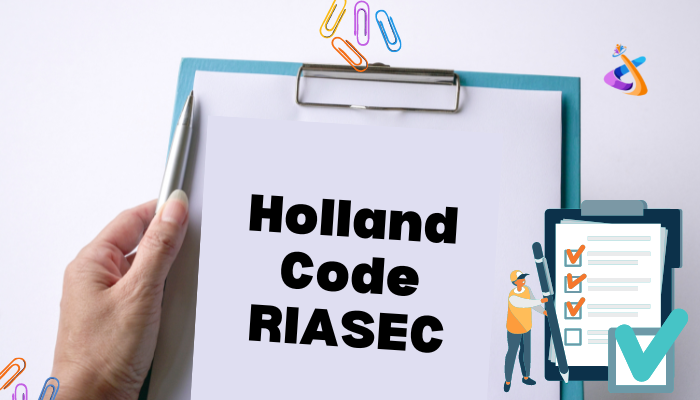
The Holland Code
The Holland Code, also known as the RIASEC theory, is a model of personality and career development that was proposed by psychologist John L. Holland in the mid-1960s. The Holland Code categorizes individuals into six personality types based on their interests, values, and preferences. The Holland Codes is a system of classifying jobs into categories based on the personality traits, interests, and skills required for success in those jobs. According to the Holland Model, the six personality types identified by the Holland Code (Realistic, Investigative, Artistic, Social, Enterprising, and Conventional) represent different work personalities, and each personality type is associated with certain job categories.By using the Holland Codes, individuals can better understand their own interests, values, and strengths, and match them with careers that are a good fit for them. This helps individuals make informed decisions about their education and career paths, and can lead to greater job satisfaction and career success.
These six personality types are:
Realistic: People who enjoy working with things and solving problems related to the physical world.
Investigative: People who enjoy seeking knowledge and solving intellectual problems.
Artistic: People who enjoy creative, original self-expression through the arts or design.
Social: People who enjoy helping and teaching others and working in group settings.
Enterprising: People who enjoy leadership, competition, and taking risks.
Conventional: People who enjoy working with data, details, and routine.
The Holland Code can be used to match individuals to careers that are suitable for their personality type. By understanding one's own personality type and the types of careers that align with it, individuals can make informed decisions about their education and career paths.
The Holland Code categorizes individuals into six personality types based on their interests, values, and preferences. These six personality types are Realistic, Investigative, Artistic, Social, Enterprising, and Conventional.
Each of these personality types is associated with certain career interests, and individuals who belong to a particular type tend to be drawn to careers that align with their interests and strengths. Here's a brief overview of the career interests of each Holland code type:
Realistic: People with this type of personality enjoy working with things and solving problems related to the physical world. They tend to be interested in careers such as construction, mechanics, agriculture, and law enforcement.
Investigative: People with this type of personality enjoy seeking knowledge and solving intellectual problems. They tend to be interested in careers such as research, medicine, science, and engineering.
Artistic: People with this type of personality enjoy creative, original self-expression through the arts or design. They tend to be interested in careers such as visual arts, performing arts, writing, and graphic design.
Social: People with this type of personality enjoy helping and teaching others and working in group settings. They tend to be interested in careers such as counseling, education, human services, and social work.
Enterprising: People with this type of personality enjoy leadership, competition, and taking risks. They tend to be interested in careers such as business, sales, marketing, and entrepreneurship.
Conventional: People with this type of personality enjoy working with data, details, and routine. They tend to be interested in careers such as accounting, finance, administrative work, and customer service.
It's important to keep in mind that the Holland code is a theory and not a definitive explanation of an individual's career interests. While the code provides valuable insights, it's just one tool that can be used to help individuals understand their personality type and explore career options that align with their interests and strengths.
Social Share

Cidentify
Choices are the right way to achieve success in a career. We enable you to make the right choices and achieve success to
- Identify your potential, skills and interests
- Plan your future and make a roadmap
- Develop your skills
- Track your plan and roadmap
- Retain your preparations and hit your target

There is no comment yet.